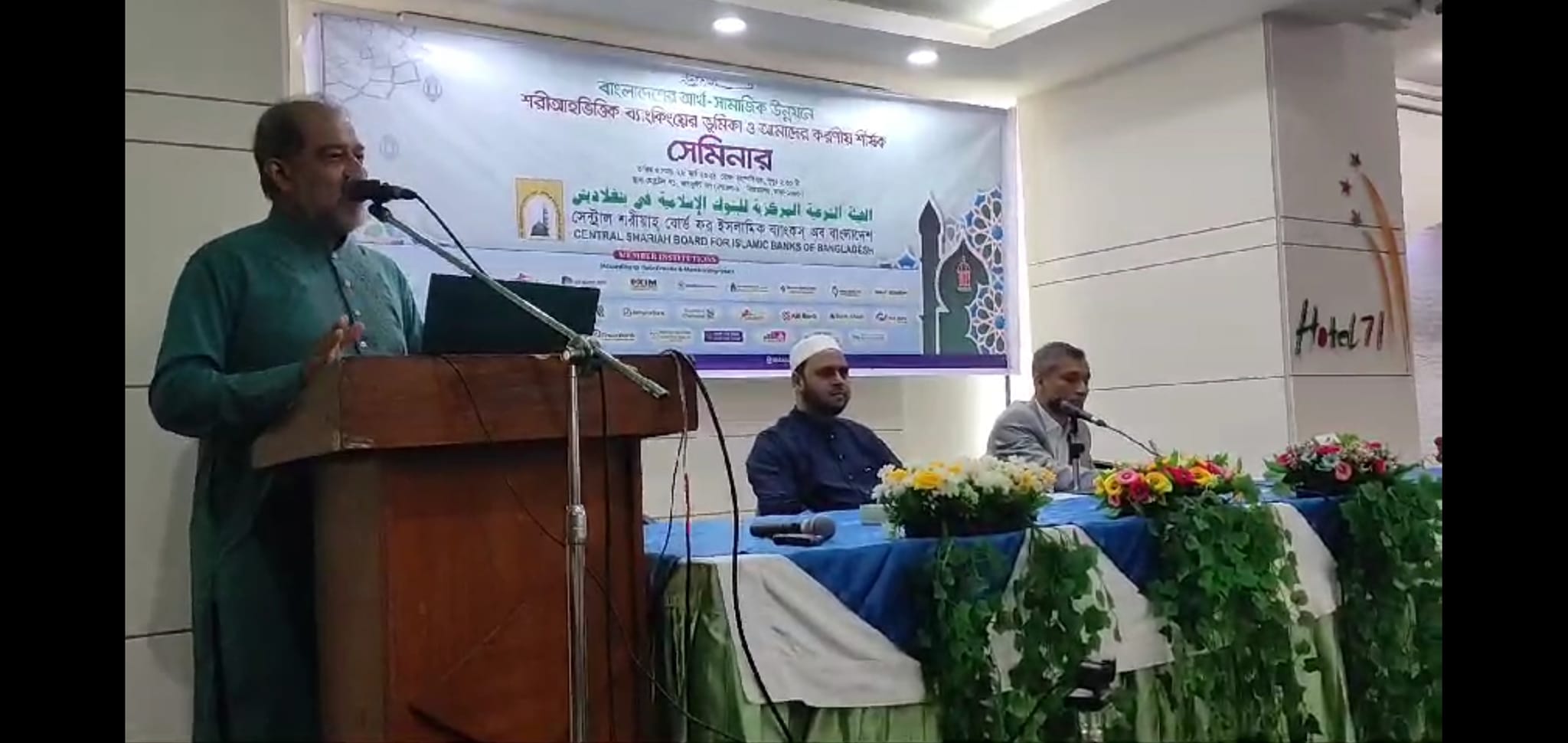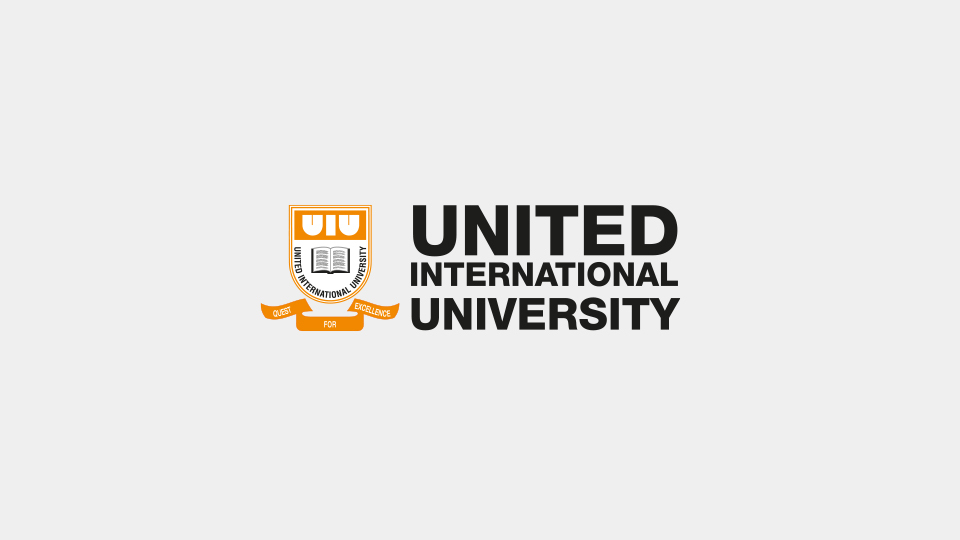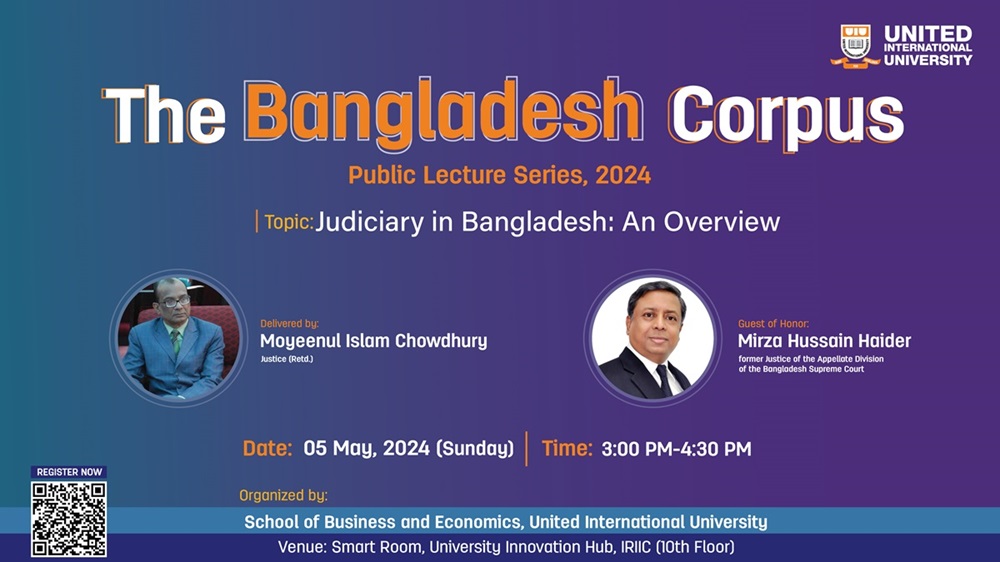News
CSBIB Seminar-IF and Socioeconomic Transformation
April 3, 2024
The Central Shariah Board for Islamic Banks of Bangladesh arranged a seminar at a hotel in Dhaka on the Role of Shariah-based banking in socio-economic development of Bangladesh. Md. Rais Hasan Sarower, Director General of the Ministry of Foreign Affairs, attended the seminar as the chief guest. The keynote was presented by Dr. Mohammad Omar Farooq, professor of economics and finance at United International University. Earlier he served as the Head of the Center for Islamic Finance, Bahrain Institute of Banking and Finance. The keynote presentation was based on a paper for the seminar: “Finance and Socio-economic development: Value-oriented and Systems Thinking based Islamic Thought”. The seminar was presided by Central Shariah Board’s vice chairman Md. Anwar Hossain Mollah. Secretary general of Central Shariah Board Md Abdullah Sharif gave a welcome speech. 16-point proposal and recommendations were adopted.
Prof. Farooq’s presentation focused on the growth of Islamic Finance and banking, but its significant limitation in the context of socioeconomic development. He articulated the theme of the influence of legalistic tendencies on Islamic law in general and Islamic banking and finance in particular. He explained why if socioeconomic development is needed and prioritized, then we need to accept that as a goal (as part of a goal orientation), map out the solution (as part of a problem-solving orientation) and systematically monitor and measure the impact (as part of an impact orientation). Currently, these three orientations are broadly missing, while all these three orientations are needed as part of Systems Thinking, where thinking is not at the level of parts or components in a fragmented manner, but rather at the level of the systems.
He also called on the esteemed audience, especially on the religious scholars and leaders to know and understand the ways modern world has changed in terms of complexity and of various ways of economic injustice and exploitation. Furthermore, he identified several scenarios where even halal or shariah-compliance at the micro or transaction level can lead to outcomes disconnected from the broader goals, or even to macro outcomes contrary to Islamic/Quranic principles. He invited the audience to read his book Toward Our Reformation: From Legalism to Value-oriented Islamic Law and Jurisprudence (IIIT, USA, 2011), which has been translated in full or in parts in 12 languages and also which has been translated into Bangla Ain, Ain Shorboshshota and Shongshkar: Mullobodhmukhi Islamic Chintadhara (BIIT, Dhaka, 2023). Also, as a Systems Thinking practitioner, he emphasized developing a better understanding of various systems and subsystems and fostering capacity to apply systems thinking from Islamic perspective.
The seminar was attended by chairmen, member secretaries and secretaries, senior muraqibs of shariah supervisory committees and councils and Islamic banking division heads of 40 banks and financial institutions, university teachers, principals of Qawmi and Alia madrasah, khatibs of mosques, journalists, lawyers and electronic media persons. Over 200 people from various professions attended the seminar. Gifts were distributed among all by the Central Shariah Board. The seminar concluded with dua, iftar and dinner.










